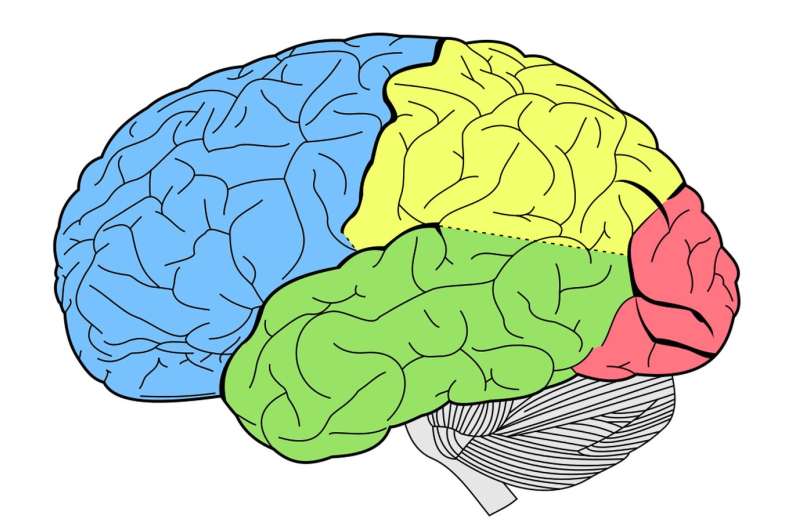This article has been reviewed according to Science X's editorial process and policies. Editors have highlighted the following attributes while ensuring the content's credibility:
fact-checked
trusted source
proofread
Exploring how OCD therapy retrains the brain

A first-line therapy for obsessive-compulsive disorder (OCD) reshapes connectivity of the brain, according to a new study in Biological Psychiatry: Cognitive Neuroscience and Neuroimaging.
OCD is an anxiety disorder characterized by repetitive thoughts and behaviors that can be disruptive and even disabling. The first-line treatment for OCD, a form of cognitive-behavioral therapy called exposure and response prevention (EX/RP), is effective for many people with OCD, but how it works has remained unclear. This new study shows that EX/RP training reshapes brain activity for better cognitive control.
In people with OCD, functional brain activity is affected in three neural networks participating in cognitive control. The networks are the frontoparietal network (FPN), the cingulo-opercular network (CON), and the default mode network (DMN). For the new study, 111 adolescents and adults with OCD received either EX/RP, which is designed to build coping skills for a patient through gradual exposure, or stress management training as a control treatment.
Then, participants underwent magnetic resonance imaging (MRI) while performing a cognitive task. After treatment, OCD participants who received EX/RP displayed strengthened connectivity between the cognitive control networks that was not seen in participants who had stress management.
Senior author Kate Fitzgerald, MD, at Columbia University, said the study "is important because it shows how EX/RP improves brain function to treat OCD. Specifically, EX/RP improved connectivity of brain circuits underlying cognitive control, the ability to adjust the repetitive thoughts and behaviors."
Leveraging the expertise of co-author Adriene Beltz, Ph.D., at the University of Michigan, the researchers used a sophisticated new analysis technique. Dr. Fitzgerald explained, "This allowed us to 'see' patient-specific brain changes with EX/RP that we could not uncover previously when using an older type of analysis that averages out brain differences between patients."
In an upcoming study, Dr. Fitzgerald uses a cognitive training video game to exercise brain circuits for cognitive control before patients even begin EX/RP therapy. "We hope this pre-therapy training will exercise the brain to help children respond more fully to EX/RP so they can overcome OCD."
Cameron Carter, MD, Editor of Biological Psychiatry: Cognitive Neuroscience and Neuroimaging, said of the work, "This study provides an important and clear example of how our increasing understanding of the functional organization of brain circuits can be harnessed to develop highly targeted therapies and to measure their impact both on the distressing symptoms of having OCD as well as the underlying brain circuits affected by the disorder."
More information: Hannah Becker et al, Changes in Brain Network Connections after Exposure and Response Prevention Therapy for OCD in Adolescents and Adults, Biological Psychiatry: Cognitive Neuroscience and Neuroimaging (2023). DOI: 10.1016/j.bpsc.2023.09.009


















